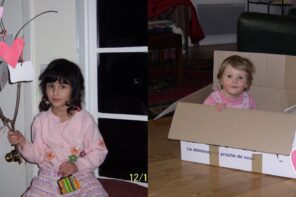Recently in one of my seminar classes, my professor stated that he has noticed a shift in mentality among students. In the same way that we have been conditioned to critique the authors of our readings to find flaws in their argumentation, we have fostered a culture of similar adversarialism and selective outrage when engaging in debates with each other online or in person. For evidence, I only need to point to the average comment section on Facebook regarding a contemporary social issue, a campus scandal or a controversial candidate’s platform. In all these places, there is seemingly no longer any sense of decorum or any will to truly understand the thoughts and experiences of one’s opponent. And this, on a university campus, does more harm than good.
While I usually avoid immersing myself in the drama of student politics, I recently found myself sucked into the storm, replying to a controversial post that was directed at HeForShe McGill’s “The Men’s Story Project” event page on Facebook. While this experience is singular in its nature, I do believe that it is illustrative of the adversarial culture in which we now find ourselves.
In all these places, there is seemingly no longer any sense of decorum or any will to truly understand the thoughts and experiences of one’s opponent. And this, on a university campus, does more harm than good.
Just for some context,The Men’s Story Project event provided three male-identifying McGill students with a platform to speak about gender-based issues related to their own experience, including those of toxic masculinity, homophobia, and gender based violence, among others. I interviewed Radhika Raturi, an executive for HeForShe McGill, who stated that the “aim of the Men’s Story Project is to show that feminism is not simply a women’s issue but a human issue. [Its aim is] to show these male-identifying participants to be full-spectrum human beings, and to educate them on gender-based topics that continue to suppress women”.
The controversy began when one McGill student decided to insinuate on The Men’s Story Project Facebook page that this event was insulting to women, that somehow it was perpetuating the notion that women could not “read” or “think critically” for themselves, and that HeForShe was only reinforcing the idea that women needed men to speak for them.
And, yes, it may be the case that these individuals simply do not agree with HeForShe’s brand of feminism, which argues that men should be given a platform to speak when the goal is to promote women’s rights and gender equality. That, of course, is perfectly fine. However, it’s like my mom always says: It is not what you say, it is how you say it.
If these individuals had a real problem with the premise of the event, it would have been more constructive to contact the club directly, or even to post an informative question/critique. Instead, what showed up on Facebook was a total mischaracterization of the event itself with the intention to humiliate.
Instead of giving the event the benefit of the doubt and actually attending it to form an opinion, these individuals decided to troll the page instead, with no aim to incite a substantive conversation or debate. For a university that prides itself on celebrating diversity of opinion, there is a strong sense of unproductive divisiveness amongst our student body.
When confronted with a post or an opinion that may conflict with our beliefs, I ask that we all simply take a breath.
There is an important distinction between being passionate about an issue and attacking another’s opinion for the sole sake of being an adversary and gaining the most likes. It should not be about getting the final word or about writing an 18-point analytic response, but rather should be about listening to the other’s point of view and asking constructive questions.
And thus, when confronted with a post or an opinion that may conflict with our beliefs, I ask that we all simply take a breath, and ask why this may be the case before jumping to attack a straw man of the other’s position. If we really want to build a campus that is healthy and inclusive, learning how to respect others’ opinions is important.
And, for all my fellow PHIL students out there, maybe when reading Descartes’ Meditations for the first time, we should all follow my former prof’s advice and and try to see where he is coming from before calling him “the worst” (haha).








